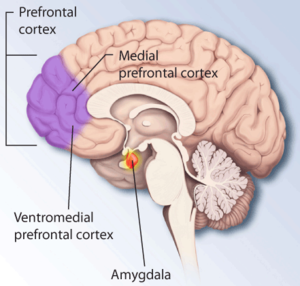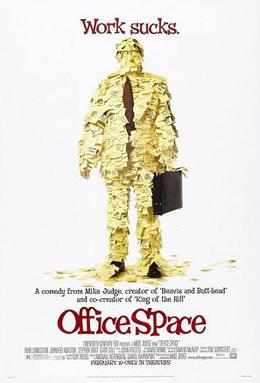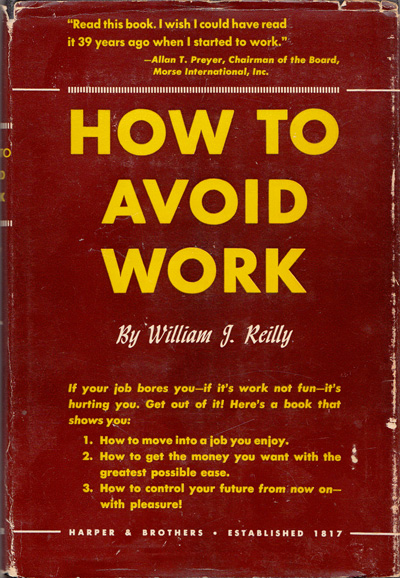If you're in need of a life lesson, an Adam Sandler movie can provide it. Parenting? Excruciating but rewarding. Growing up? You're never too old to make progress. True love? Transcends sex, memory and bad singing.

When it comes to the complex issue of career choice, the Sand Man comes through once again. Mr. Deeds is, in essence, one big career manifesto. Granted, one sprinkled with disconcerting attempts at humor about a man's dead, blackened foot, but what career manifesto isn't?
In the final climactic scene - spoiler alert! (does that term even apply to Adam Sandler movies?) - Sandler's character convinces a room of stockholders to reject a corporate sale by rousing their memories of their childhood dream jobs. Some of which are downright unpleasant. All the same, the message is clear: follow your childhood dreams; they hold your truth.
The question is, do they really?
After all, there are a million reasons why your childhood dream jobs are impractical and out of date. For instance, I dreamed of being a fashion designer when I was little, and spent countless hours sketching designs and sewing old clothes together to make haute couture. (My greatest masterpiece? An old pink t-shirt with a neon green scarf protruding from its center and half of a ruffly orange skirt sewn to the bottom. I mean, really, Versace, call me.) The thing is, I'm the least fashionable person you'll ever meet. (I just discarded my last top from high school. Despite its hodgepodge of geometric shapes and Teen Spirit caked into the pits, I still insisted on taking it to Goodwill because it was a perfectly good shirt.) Point is, I would've stunk as a fashion designer. So does that mean my childhood dream is totally invalid?
Well, if we're looking to avoid a fulfilling career, then yes, we should convince ourselves that childhood dreams are nothing more than the unrealistic spit-up of an underdeveloped mind.
But if we're in the career search to actually find some greater truth (read: living up to our fullest potentials), then maybe Mr. Deeds can teach us a thing or two.
When we look beyond their manifest content, childhood dream jobs may be ripe with lessons. In fact, they may be the best clues to the genetic career inclinations we discussed in the last lecture. Before parents and society and teachers began to tell us what we should be, or what we needed to be concerned about (money! status! a McMansion!) - in other words, before our genetic propensities were covered up with a ton of confusing voices - we had our dreams of being a firefighter, an astronaut, an ornithologist (I was weird). Childhood dreams are, if you will, the bread crumbs leading us to our genetic home. And thus to the unique and distinctive work we should be doing in this world.
The actual job itself is, for the most part, meaningless. It may give you a clue or two to your interests, but if that were completely true, we'd all love dinosaur bones way down deep inside. And I so don't.
What I find more valuable is to consider what our childhood dreams can tell us about the more nuanced aspects of career, the facets that tend to stay constant throughout our lives, even as we undergo our three to five career changes. Especially when we consider the answers when considering our full range of childhood dream jobs.
- How much cognitive complexity do I prefer to handle (or even need to have)? In other words, is The Walking Dead about my limit of complexity for the day?
- What types of work do I like to engage in? Work involving discovery or creation or logic or radical subversion?
- Do I like to use my motor skills? Am I good at using them? If so, do I prefer gross motor or fine motor activity? (Put another way, would I be better at kicking down doors or picking locks?)
- What level of physical activity do I like to have in my day? Do I prefer to be confused for the chair in which I sit, or do I enjoy offending people from the scent of the sweat I work up throughout any given day?
- What type of people do I prefer to be around?* Those who are artistic or entrepreneurial or conventional or pruddish?
- What sort of work environment do I like?* An office? A lab? A setting with children present? A maximum security facility?
- Do I prefer to work alone or to engage in teamwork? (Read: can I stand others, and can they stand me?)
- Is there a certain geographic setting that I prefer? A big city, a rural setting, a remote site, somewhere abroad, a secret bunker underground?
- Are there certain work conditions I'd prefer?* Do I want certain times of year off? Do I want to work at odd hours, or conventional 9 to 5 hours? Do I like to have someone who gives structure to my day (read: a boss), or do I like to create structure for myself? Do I like to wear clothes while working?
Of course our childhood selves didn't consider most - if any - of these questions when we were "picking" a dream career. (Although even that is debatable; my two-year-old contemplates the "wearing clothes" question on a daily basis, to which she answers a resounding no. Yup, we're in big trouble.) Regardless of conscious consideration, I'd make the claim that we naturally gravitated to jobs that matched our innate propensities on many of these dimensions. Perhaps not all, but many.
So when people scoff and say that childhood careers are meaningless to the adult job search, they are, in some ways, correct. The what doesn't matter. At all. Nobody would want me designing their clothes.
But the why, that may matter. Perhaps more than we allow ourselves to realize.
What do you think: Do you believe that childhood dreams have importance for our career search, or are they simply the impractical spewings of an immature brain?
*Items derived from What Color is Your Parachute? by Dick Bolles.
The career guru himself. (Photo credit: Wikipedia)





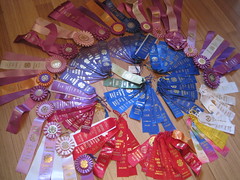
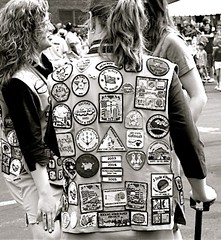




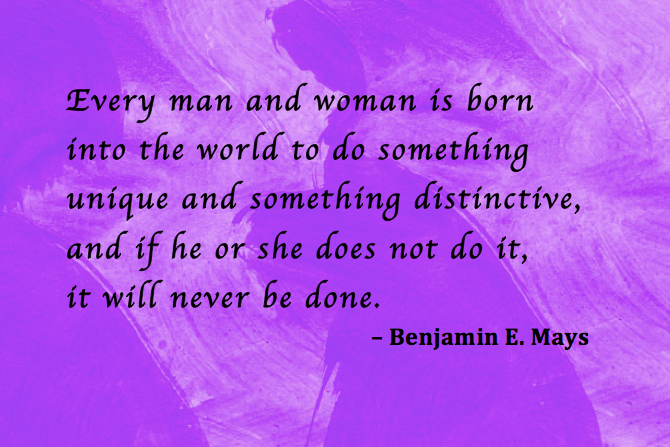
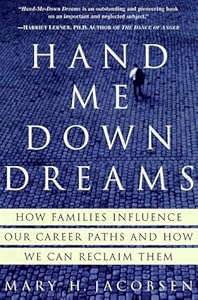


 Nominated by MJ at
Nominated by MJ at  Nominated by Raimy at
Nominated by Raimy at  Nominated by Ashsappley at
Nominated by Ashsappley at 
